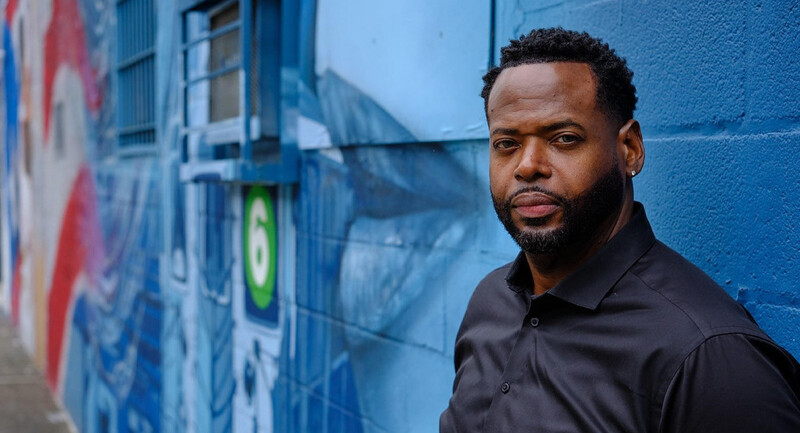Yes, the process for hiring and recruiting staff has been reduced to algorithms that filter by keyword. This doesn’t mean that algorithms are wrong or bad, but it does mean that we have to actively work to humanize the interview process. Ultimately, we are not looking to fill open positions but are instead looking to get the right people in the right positions. We need a mindset shift in the interview process to get the right people on the bus.
Identify what you need
Suppose Position A has opened up in your district. The obvious step is to post the role description and begin sifting through résumés. While this process doesn’t need to go away, it does need to be coupled with some internal discussion on what you’re looking for in a new team member. Whether this be a classroom role or an administrator role, this new hire will have to work on a team. It is important that we’re not playing the game of substitution and instead being thoughtful about who we are recruiting for that position. Before looking at résumés, have your team think about these questions:
- What does our team do well?
- What perspectives are missing from our team?
- What experiences are missing from our team?
- Where does our team need to improve?
While these questions may seem vague, they’re supposed to be. When leading the hiring process, you want to be careful about inserting your own bias. Asking some vague, open-ended questions of your colleagues leaves space to share and will help you gain perspective before beginning the hiring and recruitment process.
Learn to think flexibly
It is certainly easy to filter by degree, licensure, and years of experience. In public education in particular, we have these clear-cut assumed pathways to leadership that cause us to overlook or discard candidates that don’t fit the mold. While it might not be as blatant, we do this with classroom teaching roles as well. We have to stop this. Fitting the mold doesn’t mean a candidate will be effective or even be the right fit, so why are we prioritizing the résumé script?
We should abandon pathway thinking altogether. Sure, licensure matters and degrees matter; however, education requires continued professional learning and mentorship. This means training, professional learning communities, and a continuous commitment to professional growth through our supervision and evaluation system. We have to stop discarding candidates because they don’t have the exact cookie-cutter experience we envisioned.
There are ways to combat this rigid thinking. For starters, ask some application questions that give candidates an opportunity to make connections between their experience and the responsibilities of the role. Read these first, before you look at a résumé or cover letter. If you have questions about a candidate’s experience, bring them in for a conversation!
Ask the right questions
Much like issues with the job description or the cookie-cutter résumé, in education we can get into an interview question funk where we’re really not asking questions that get at the candidate’s mindset or provide any depth in the interview. When hiring a classroom teacher, we often ask questions about classroom management. Yuck! Do you want to hire a teacher that manages their students or a teacher that engages their students in learning?
I try to avoid cookie-cutter questions altogether. Instead, I begin with identifying current priorities and then craft questions that speak to them. Here are some questions I’m thinking about when recruiting classroom teachers:
- What does engagement look like?
- How do you measure learning?
- How do you support your students socially and emotionally?
- Share your definition of differentiation. What teacher moves would you make to differentiate for your students?
- Share your definition of culturally responsive teaching. How might you include CRT in your practice?
- How do you define equity and access? Describe what this looks like in the classroom and as a school.
I know these questions are pretty big picture, but I don’t want to be too specific, as I might unintentionally insert my bias into the questions or, even worse, cause the candidate to provide a scripted response. I want to learn how the candidate is interpreting these practices and also gain an understanding of their education philosophy. Remember, you can train a teacher to post an agenda and objective; the interview should be a moment where you are recruiting mindset and perspective.
It’s an interview, it’s not an interrogation
I enjoy interviewing and being interviewed. Not everyone does, and even though I happen to find joy in the process it doesn’t mean that I have not been tripped up by an oddly phrased question. Ultimately, we want to use the interview as a time to get to know the candidate. If the process is intimidating, we’re actually limiting our own ability to find the right fit. Here are some moves I make to ensure candidates feel comfortable in the interview room.
- Give them the questions ahead of time. Why be reticent? Let the candidate know in advance what you’ll be asking and give them an opportunity to prepare. The candidate is not only more at ease when they walk in, they’re also able to provide greater detail and the clarity you need to be able to move them on to the next round.
- Explain the process. Before you begin, share with the candidate your timeline for hiring for the position. Revisit this at the end of the interview and let them know when to expect to hear from you again.
- Divide the questions up in a meaningful way. Have the interview team select questions they feel most passionate about. This might seem trivial, but asking a question in your comfort zone means that you can articulate it better and ask pertinent follow-up questions.
- What didn’t we ask? I might change the phrasing of this each year, but I think it’s important to give the candidate an opportunity to share an experience or philosophy that might not have come up in the interview naturally.
- Do you have any questions for us? Give the candidate an opportunity to ask you questions. These can be telling. I’ve been asked questions about my own philosophy on instructional technology and the district’s commitment to professional learning. It’s nice to know what’s on their mind.
My process might not be perfect, and I do have to check my bias constantly, but I approach hiring and recruitment each year with the intention of challenging my thinking and my assumptions. It’s how I commit myself to improvement. If we don’t actively work to disrupt our approach, we will teach as we’ve been taught and interview as we’ve been interviewed, and maintaining the status quo will always be a barrier to change.
*A version of this post first appeared on BurroughsEDK12.








